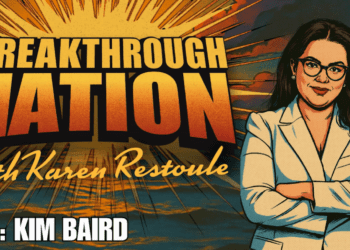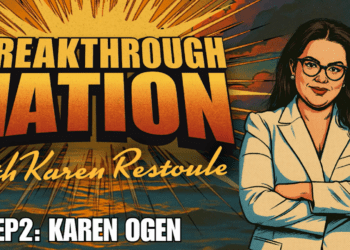Empowering Aboriginal Students to Educate Themselves:
New Ottawa think tank proposes major policy overhaul
(Le français suit)
Ottawa, March 15, 2010 — The Macdonald-Laurier Institute, a unique new Ottawa think tank, today issued a study, Free to Learn, calling on the federal government to reform its funding of post secondary education for First Nations students. The authors’ key proposal is to create an Aboriginal Post Secondary Savings Accounts that would be opened at birth for every registered Indian. This policy of empowering aboriginal students to educate themselves would replace the government’s Post-Secondary Student Support Program, which gives $314-million annually to Indian band councils who distribute it as they see fit, with little accountability.
The proposal to revamp federal aid for aboriginal higher education is written by Calvin Helin, the prominent aboriginal author, lawyer and entrepreneur, and Dave Snow, a University of Calgary doctoral candidate. It has been endorsed by a dozen aboriginal leaders, educators and others, including Don Barraclough, Caroline Krause, Patrick Brazeau, Glenn Hudson and Gayle Bedard.
In releasing Free to Learn, Brian Lee Crowley, Managing Director of the Macdonald-Laurier Institute, said: “Aboriginal policy in Canada is a shameful mess. It is expensive, unaccountable and too often fails those it’s meant to help. Existing federal aid to aboriginal post-secondary education works badly, even though it is in a realm that’s critical to the success of individual First Nations students and important to the Canadian economy. It is way past time to do better – and Calvin Helin and Dave Snow have shown us the way today.”
Helin and Snow note that the federal Post-Secondary Student Support Program, or PSSSP, costs nearly a third of a billion dollars, but Indian and Northern Affairs Canada gives the money directly to Indian bands whose leaders distribute it without accountability. Their transparent, principled alternative to the failed PSSSP, federal Aboriginal Post-Secondary Savings Accounts, opened at birth for every Registered Indian, would be topped up as the recipient progresses through high school, then paid directly to any accredited college, university or trade school where they enroll.
APSSA’s would avoid fraud and favouritism, encourage institutions of higher learning to compete for aboriginal students, and give every Registered Indian confidence that success at school will open doors to a brighter future.
“Helin and Snow’s proposal is good for all Canadians,” Crowley said. “I’m proud to release it as our Institute’s first paper because it means hope for Aboriginals. It means more educated young workers in our aging workforce. Above all, it means undoing a long legacy of failed policy that costs taxpayers a fortune and leaves Aboriginals mired in poverty and hopelessness. It’s about decency and justice, about respecting the rights of individual aboriginals and giving them a fair chance.”
The Macdonald-Laurier Institute is the only non-partisan, independent national public policy think tank based in Ottawa that is concerned with the full range of issues that fall under the jurisdiction of the federal government.
-30-For more information, or to arrange an interview with the authors or with Brian Lee Crowley, please contact Stephanie Delorme at 613-482-8327 ext. 101 (
stephanie.delorme@macdonaldlaurier.ca)
Free to Learn may be downloaded free from the Institute’s website www.macdonaldlaurier.ca.
Donner aux étudiants autochtones le pouvoir de contrôler leur éducation:
L’Institut Macdonald-Laurier propose un changement de politique majeur
Ottawa, le 15 mars 2010 – L’Institut Macdonald-Laurier, un institut de politiques publiques unique nouvellement établi à Ottawa, a dévoilé aujourd’hui une étude,
Libres d’apprendre,qui encourage le gouvernement fédéral à réformer le financement des études postsecondaires pour les étudiants autochtones. La principale recommandation des auteurs est la création d’un Régime d’épargne-études autochtone, un compte qui serait ouvert dès la naissance pour chaque Indien inscrit. Un tel changement donnerait aux étudiants autochtones le pouvoir de contrôler leur éducation, remplaçant ainsi le Programme d’aide aux étudiants de niveau postsecondaire, pour lequel le gouvernement fédéral transfère 314 millions de dollars aux bandes autochtones annuellement, une somme que les bandes distribuent de façon non imputable.
Les auteurs de ce projet de réforme sont Calvin Helin, auteur, avocat et entrepreneur autochtone bien connu, et Dave Snow, un étudiant au doctorat à l’université de Calgary. Le projet de réforme a déjà reçu l’appui d’une douzaine d’éducateurs et de leaders autochtones, incluant Don Barraclough, Caroline Krause, Patrick Brazeau, Glenn Hudson et Gayle Bedard.
En annonçant Libres d’apprendre, Brian Lee Crowley, Directeur général de l’Institut Macdonald-Laurier, déclare : « Les politiques autochtones canadiennes sont dans un état lamentable. Elles coûtent une fortune, elles manquent d’imputabilité, et trop souvent elles n’arrivent pas à aider les individus visés. La politique actuelle d’aide aux études postsecondaires ne fonctionne pas bien, malgré le fait qu’il s’agisse d’un aspect crucial pour le succès des étudiants autochtones et de l’économie canadienne. Il est plus que temps de faire mieux – et aujourd’hui Calvin Helin et Dave Snow nous indiquent la voie à suivre. »
Les auteurs notent que le Programme d’aide aux étudiants de niveau postsecondaire, ou PAENP, coûte près d’un tiers de milliard de dollars, une somme transférée aux bandes autochtones par Affaires indiennes et du Nord Canada et que les leaders autochtones distribuent sans imputabilité. Le Régime d’épargne-études autochtone proposé pour remplacer le PAENP verrait un compte ouvert dès la naissance pour chaque Indien inscrit, compte qui serait augmenté après chaque année d’études secondaires complétée. Les sommes ainsi accumulées seraient ensuite versées directement à l’école de métier, au collège ou à l’université que le bénéficiaire choisit de fréquenter.
Un tel Régime d’épargne-études autotchone éviterait les problèmes de fraude et de favoritisme, en plus d’encourager les établissements d’éducation supérieure à attirer les étudiants autochtones et de donner à chaque Indien inscrit la confiance que le succès scolaire mènera à un avenir meilleur.
« La recommandation de Helin et Snow est à l’avantage de tous les Canadiens, ajoute Crowley. Je suis fier de la présenter en tant que première publication de notre Institut parce qu’elle est porteuse d’espoir pour les autochtones. Elle veut dire plus de jeunes travailleurs éduqués dans notre marché du travail vieillissant. Mais plus important encore, elle permet de remplacer un héritage de politiques inadéquates qui coûtent une fortune aux contribuables sans pour autant aider les autochtones à sortir de la pauvreté et du désespoir. Il s’agit de justice fondamentale; nous voulons donner aux autochtones la chance de réussir en respectant leurs droits individuels. »
L’Institut Macdonald-Laurier est le seul institut national de politiques publiques non-partisan et indépendant établi à Ottawa dont le mandat inclut l’éventail complet des dossiers qui tombent sous la juridiction du gouvernement fédéral.
– 30 –
Libres d’apprendre (en anglais, sommaire en anglais et en français) peut être téléchargé gratuitement sur le site internet de l’Institut,
www.macdonaldlaurier.ca.




